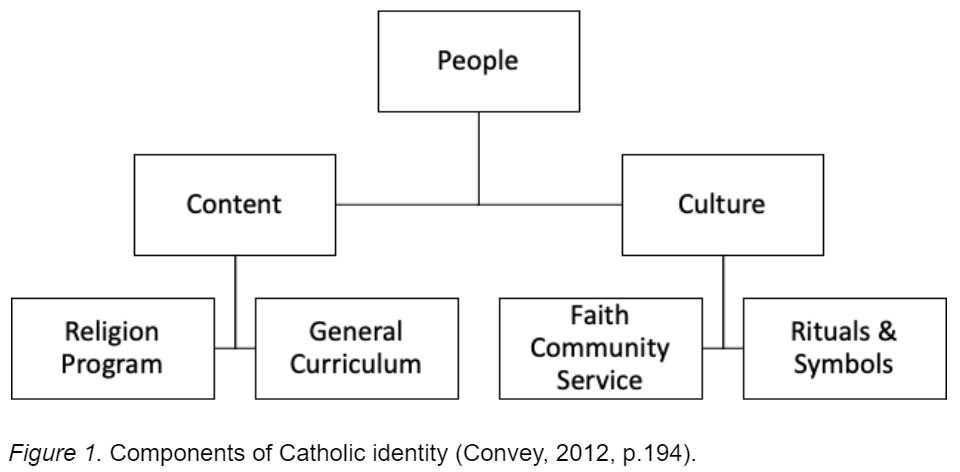Catholic schools in Alberta have a distinct mission; providing an education within the framework of the provincial curriculum, and doing so in an atmosphere that is permeated by faith. The role of the principal as a leader of faith within the school community is essential in fulfilling this mission, as they are responsible for overseeing teaching and learning, while at the same time nurturing the spiritual growth of students, staff, and the broader school community. My doctoral research focused on the role of the principal as faith leader within Alberta’s Catholic schools. In this brief article, I will attempt to delve into the importance of this role and identify a few key competencies and responsibilities of principals in Catholic schools.
Perhaps the most fundamental aspect of the principal's role as a faith leader is the promotion of Catholic teachings and values throughout the school. This involves not only ensuring that Catholic doctrines are integrated into the curriculum, but also that they are incorporated into the daily life of the school. This can include the use of prayers and religious observances in school events, the promotion of community service and social justice initiatives, and the encouragement and support of faith-based extracurricular activities.
Another important responsibility of the principal as a faith leader is the cultivation of a strong Catholic culture and identity within the school. This includes creating an environment that is welcoming and inclusive to students, staff, and families of all backgrounds, while also celebrating the unique aspects of Catholicism. It also involves modeling and encouraging behavior that is consistent with Catholic values, such as kindness, respect, and compassion. Convey (2012) proposes a fairly structured model regarding the key components of Catholic identity which illustrates the basic components of both content and culture:

According to Convey (2012), some of the most important elements of Catholic school identity include a strong faith community, the teacher of religion being Catholic, starting the day with prayer, and Catholic teachings being presented in religious education courses, but also integrated into the general curriculum to the greatest extent possible. As not only a faith leader, but also the instructional leader in the school, it is the responsibility of the principal to oversee all aspects of Catholic identity and culture, from religious instruction to faith activities, liturgies, and service projects.
In order to fulfill these responsibilities, the principal must possess a deep understanding of Catholic teachings and their relevance to modern society. This requires ongoing professional and faith development, as well as a willingness to engage in theological reflection and dialogue with others in the school community. Additionally, Catholic school principals are called to model Catholic values and teachings in their own life. This involves living out the faith in their personal and professional life and being a visible and authentic example of faith for the school community.
In addition to promoting Catholic teachings and values within the school, the principal as a faith leader must also work to build strong relationships with the broader Catholic community. This can involve collaborating with the local parishes, diocese or eparchy, and other Catholic organizations (i.e., Catholic Social Services, Society of Saint Vincent de Paul, etc.) to promote shared goals and initiatives. It also involves being an active participant in diocesan or eparchial events and initiatives, and fostering a sense of connection between the school and the wider Catholic community.
With so much good news to share, the principal as a faith leader must be able to effectively communicate the school's Catholic identity to stakeholders both within and outside of the school. This requires the development of clear and compelling messaging that conveys the school's mission and values, as well as the successes and challenges of the school's faith-based initiatives. It also involves actively engaging with the media and other external stakeholders to promote the school's Catholic identity and achievements. This requires leadership and guidance at the division level, regardless of whether or not there exists a dedicated communications individual or department, to ensure that communication meets a basic standard and aligns with the mission and vision of the school jurisdiction.
The principal's role as a faith leader in Alberta's Catholic schools is a complex one that requires a broad range of skills and expertise. By promoting Catholic teachings and values, cultivating a strong Catholic culture within the school, building relationships with the broader Catholic community, and effectively communicating the school's Catholic identity to stakeholders, the principal as a faith leader plays a critical role in shaping the faith and character of the school community. What’s more, is that this must all be accomplished while attending to all other elements of leadership in the school, as articulated in both the Alberta Education Leadership Quality Standard (LQS) and its Catholic sister document, the Council of Catholic School Superintendents of Alberta (CCSSA) Catholic Leadership Standard, which adds to the LQS the component of Embodying Catholic Leadership and permeates faith through all other aspects of school leadership. The interconnectedness of all aspects of leadership is depicted in the below graphic, which was adapted from a similarly-styled graphic developed by the College of Alberta School Superintendents.

In conclusion, the role of the principal as a faith leader in Alberta's Catholic schools is multifaceted and essential to fostering a strong Catholic identity within the school community. Through integrating Catholic teachings into the curriculum, actively engaging the school community in the faith, promoting service to the community, working closely with clergy, families, and Catholic agencies, and modeling Catholic values and teachings, the principal is able to create a Catholic learning environment that inspires students and staff to live out their faith in their personal and professional lives. To generalize, the faith leadership role of the Catholic school principal can be defined as living gospel values and serving as a Catholic role model to the school community while working to permeate faith into all aspects of the work of school management and leadership. Sounds simple enough.
References
Convey, J. J. (2012). Perceptions of Catholic identity: Views of Catholic school administrators and teachers. Catholic Education: A Journal of Inquiry and Practice, 16(1), 187-214. doi:10.15365/joce.1601102013
Council of Catholic School Superintendents of Alberta. (2019). CCSSA Catholic leadership quality standard competency braid [Graphic].
Dr. Clint Moroziuk has worked in Catholic education for the past 26 years and has served as the Chief Superintendent of Greater St. Albert Catholic Schools since 2020. He holds a Bachelor of Education from the University of Alberta, a Master of Arts in Education from the University of Phoenix, a Master of Religious Education from Newman Theological College, and a Doctor of Education from the University of Calgary. He recently collaborated on designing a course for the Master of Education program at St. Mary’s University in Calgary and looks forward to serving as an instructor in that program in the future.



